I flipped open the new issue of my local conservation department’s magazine. Filled with gorgeous photography and information about nature in my state, I often learned things I had never known about the forests and fields around my homestead. But as I glanced at the letters to the editor, I put down my tea mug with a jolt.
“I hope there wasn’t something that I really wanted to read in your latest issue. I saw the spider on the cover and quickly put it in the recycling bin. Please don’t put spiders or tarantulas on the cover. I have a fear of them and don’t like to see them on my reading table.”
I reread the complaint and sighed. Though I wasn’t necessarily mad at the letter-writer, I was incredibly frustrated with the sentiment. She may very well be truly terrified of 8-legged arthropods, but that fear was keeping her ignorant. The article that made her waste the magazine had been a fascinating write-up on wolf spiders that may have helped her overcome the fear.
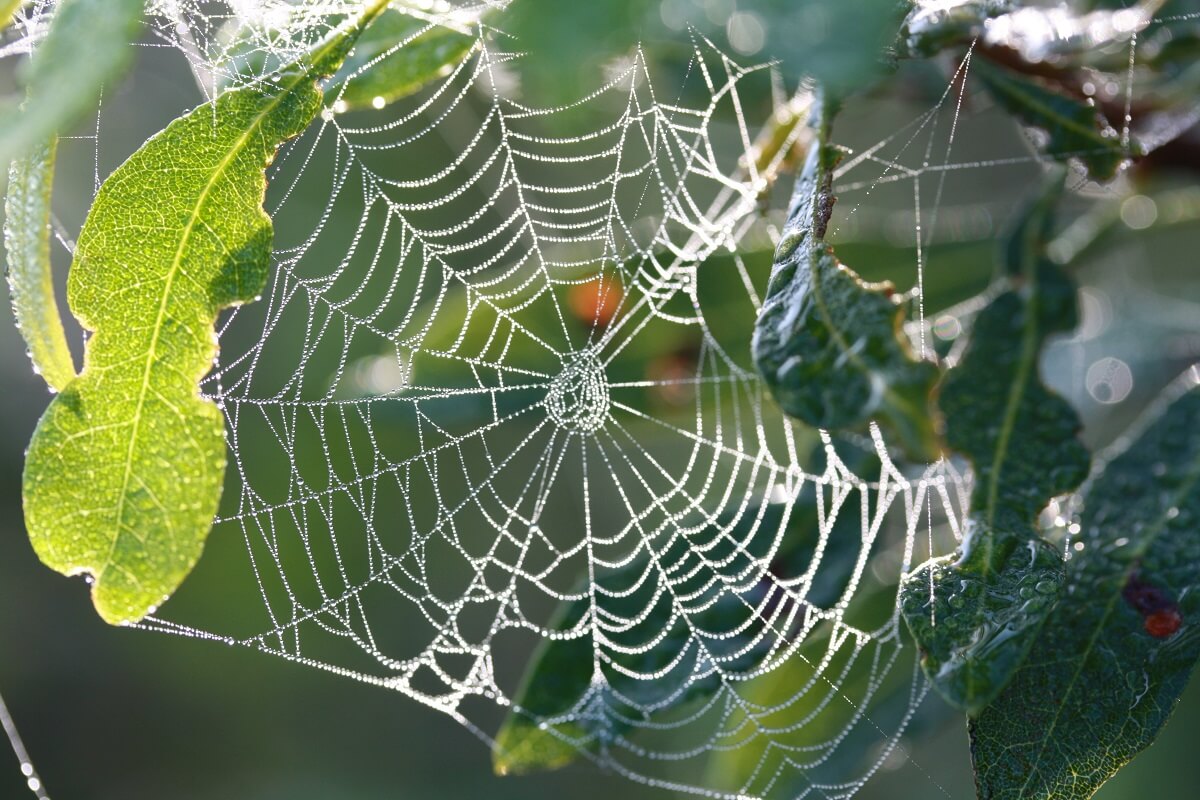
Here’s the thing. If you’re willing to see them in a new light, spiders are just as beautiful and useful as the gorgeous butterfly that paints the air above your flowerbed. Their bad rap has many a homesteader smashing them — rather than benefiting from their contributions — and honestly, your garden is suffering for it!
So even though you may harbor personal loathing of spiders, you’ve read this far, so stay with me. Please don’t turn off your computer at the sight of the spiders in this article. Don’t shudder and click the “X” at the top right. I challenge you: Give me this chance to offer you reasons to not be afraid of spiders. Indeed, without these creatures, life would be a whole lot worse.
Let’s talk about why. I hazard a guess that if you understand what these wonderful creatures are doing when they scuttle across your path (spoiler alert! It’s not to chase you down and bite you unprovoked), you’ll be less inclined to give them a terrified smush. If you try hard enough, you may be able to find them as beautiful as I do. And when even spiders are beautiful in your eyes, the world becomes full of wonder, not terror.
1. The Fear Of Spiders Is A Modern, Learned Fear
I think it’s safe to assume there has never been a creature more feared and less understood in our modern age than the spider. Look at any Top 10 list of what people fear most, and you’ll find arachnophobia every time.
This hasn’t been consistent throughout history, however. Both history and myth are loaded with overwhelmingly positive spider stories.
- In West Africa and the Caribbean, the spider-trickster Anansi is a storytelling character who imparts wit and wisdom to his listeners.
- In Greek myth, Arachne (the source of the scientific designation Arachnid) was a talented weaver who was turned into a spider after besting a goddess in a weaving contest.
- Those familiar with Scottish history well know the legend of Robert Bruce, and how his admiration for a spider’s dogged persistence in weaving a web despite repeated frustrations, inspired him to re-enter the battle fray.
- In Jewish tradition, a spider is credited as helping protect the future King David when he was hiding from the murderous King Saul. According to the Midrash, a spider spun a web across the cave where he was hiding just after he’d entered, making it seem as if no one had entered for a while and directing Saul elsewhere.
I could go on, but you get the point. Most people throughout time have seen spiders as good. It is only relatively recently that we’ve had the luxury of chemically blasting spiders from our living spaces and scaring each other with nightmare movies. I think it has robbed many of an opportunity to see the same industriousness, patience, and beauty that history was well-acquainted with.
2. Spiders Are Incredibly Helpful
You may have known this section was coming. Environmentalists and naturalists the world over have ladled statistics and interesting factoids to try to spread the gospel that spiders aren’t evil, but it’s often a rather fruitless sermon. However true the statement may be, reality often can’t overcome strong, learned feelings.
But you’re a homesteader, or at least someone who cares a little more than average about gardens, flowers, and the general well being of your natural surroundings. You’re probably a little more willing to listen and think for yourself.
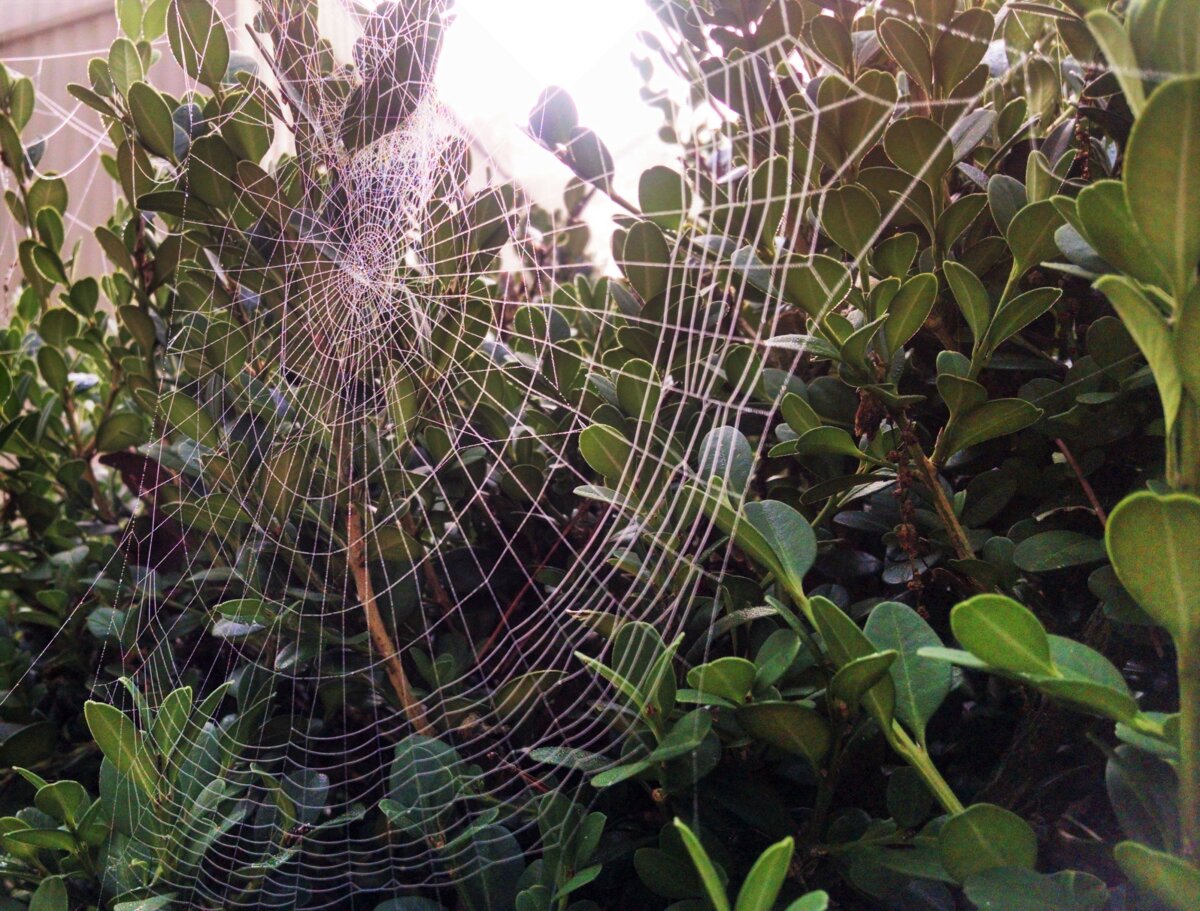
So if you really, really don’t like arachnids, consider this single fact. Spiders eat lots of insects. Estimates fall somewhere around 880 million tons of insects a year. Now, before you get lost in the nightmare image of 880 million tons of insects in a horrible writhing mass, find a spider and thank it.
Then go to your garden, look at all the crop plants that those spiders are helping you defend from an insect onslaught, and maybe think twice about bringing out the spider-killing spray.
Related Post: 17 Natural Mosquito Repellent Options For The Home And Garden
Spiders are a food source for other animals as well. Even the delicate-seeming hummingbird often plucks tiny spiders out of their webs for food and uses the strong, stretchable web of its victims to make its impossibly tiny nest. This makes hummingbird nests uniquely elastic. They stretch as the babies inside them grow.
3. Spiders DON’T Want To Bite You
The prevailing notion seems to be that if you discover a spider, you are discovering a threat. It’s lurking around the house or forest, waiting to jump on your face and bite you with unprovoked malice. They hang in their webs, plotting our demise at their venom-dripping fangs. They purposely seek out our pillows, relishing the moment when we, unawares, come close enough for the kill.
Has there ever been a less-understood creature?
The fact is, all spiders want is to be left alone. Humans are huge to a spider. Though spiders don’t really feel “fear” like we do, they are far more afraid of humans than we are of them. We are a legitimate threat — as any giant living thing that might harm them — and so they are naturally designed to get away from us and run to safety.
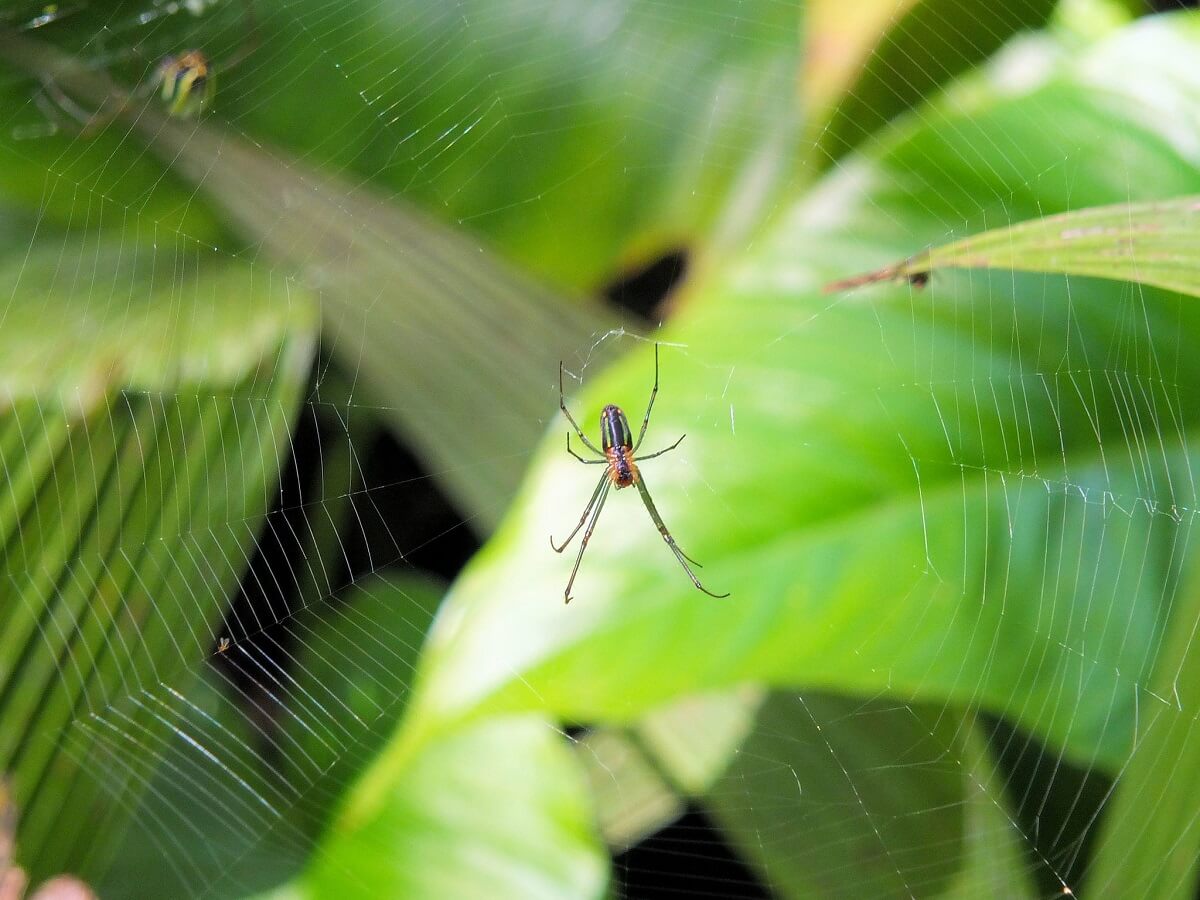
A spider only wants to bite its food which is something that helps it live. A human is not a food source to a spider. We’re big and scary. Therefore, a spider has no desire to bite you. They only bite in self-defense if they feel they have no other option (as in being accidentally pressed against your skin).
If this still doesn’t convince you that a spider isn’t really a threat, let me run this comparison past you. Take the dog — man’s best friend, a furbaby, a 4-legged member of the family, a granddog, for whom you have a bumper sticker declaring your love. There are countless books and movies dedicated to the loyalty and bravery of dogs.
People willingly let dogs into their home, into their laps, and into their beds, and live with them side-by-side. The first reaction many people have when they see a dog is the desire to pet it.
But the fact is, dogs hurt a lot of people, and kill a lot of livestock when left to run loose. Every year in the United States alone, an average of 30 to 50 people die from dog attacks, and up to 13,000 people are hospitalized. How many people in the U.S. have died from a spider bite every year? Under seven. The dreaded brown recluse spider has only caused five deaths since 1984.
Am I trying to turn you against dogs? Of course not. I have dogs of my own. I’m just trying to illustrate a point: If people can choose to see dogs as good — though many of them have hurt or killed people and livestock every year — perhaps people can choose to lessen some of their extreme prejudice against spiders.
4. Most Spiders Can’t Actually Hurt You
Even the relatively few documented spider hospitalizations recorded every year come with the caveat that they are often misdiagnoses. As I mentioned in the last point, spiders don’t actively crawl around, biting people. Not every spider can bite through human skin.
There are fewer spiders who can bite through the skin that have venom with any sort of effect. And even then, the instances of them biting people are rare. The instances of those bites being more than just a temporary annoyance are rare.
Take the example of wolf spiders — one of the more common spiders that may run across your path. Though they may look big, bites from these spiders are extremely unlikely. And if you were to mess with one long enough to induce it to bite you, the effects of the insignificant venom would dissipate within a few minutes. That’s how essentially harmless they are.
And (again) the brown recluse, one of the most feared American spiders, is hardly the threat that sensational online articles claim it to be. First off, many people outside the spider’s natural range fear it mistakenly — and many harmless wolf spiders are misidentified in fear, and stomped.
Secondly, they have very weak jaws and can’t bite through cloth. They may bite when pressed against the skin (such as when they are hidden in clothing that was left on the floor). Third, the skin-melting necrosis (that the species is feared for) is incredibly rare, and often misdiagnosed.
Of all the reported bites from Loxoscelese reclusa, even taking into account incorrect identification and misdiagnoses, only 10% of bites are medically significant. Yes. You could get bitten by a brown recluse spider, and all you’d have to write home about was a mild, itchy, red bump.
5. Spiders Are Beautiful
There, I said it. Spiders are really, really beautiful. Have you ever looked at the intricate pattern on an orb weaver’s abdomen? Have you ever watched a zebra jumping spider regard you with its disproportionately large eyes and felt like it was looking back? Have you ever watched a spined micrathena weave the bright disc in the middle of its impossibly huge web, and then marveled as the sun reflected off it, and transformed it into a floating ring of light?
Or have you ever seen the apparent care with which the wolf spiders tote their babies on their backs, protecting them as they roam the fields? Have you walked in the early, dewy morning as the sun broke the horizon, and seen the dawn illuminate a trillion droplets of water, all hanging like crystal beads, on a perfect web?
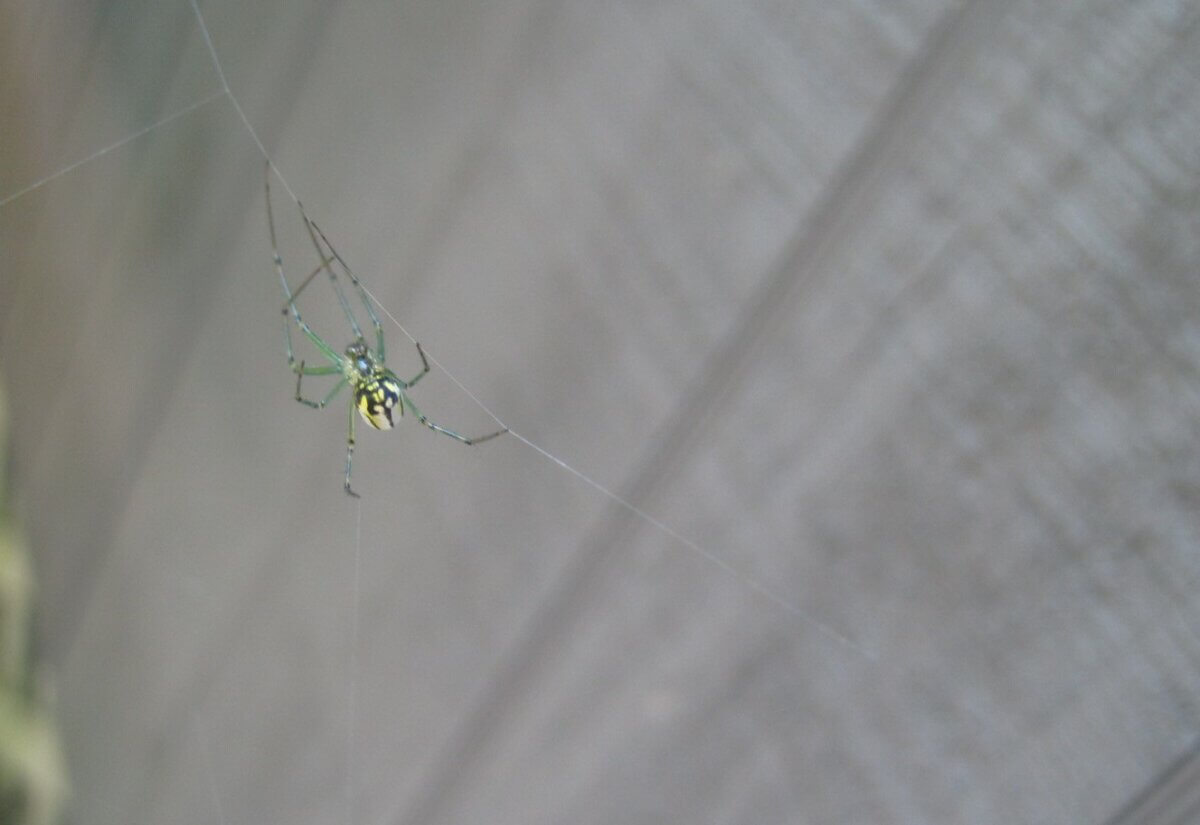
I have seen all these things and more, because I’ve looked. If you can overcome the knee-jerk reaction of spiders being “gross,” you may very well see something that amazes you.
I know this article alone can’t make you change your mind. But at least you’ve been given the idea there is beauty to be seen in all creatures outside — including the 8-legged.
6. There Are Simple, Natural Ways To Keep Spiders Out Of A Given Space
Now having just written that last point, and as much as I do like spiders, I don’t want them crawling across every surface inside my home (though I don’t mind one in the window or corner of the porch). I’d expect that you, like most people, would rather have them outside than in your living spaces.
There are handfuls of articles online about how to get spiders out of your house and yard. Everything from diatomaceous earth to sticky traps and toxic chemicals are employed to expatriate the 8-legged from our human dwellings.
Related Post: Diatomaceous Earth: 14 Surprising Everyday Uses
But I’d like to offer a different approach. Rather than waging a chemical war against arachnids, why not use their habits against them instead? Spiders like undisturbed, private places. They like being hidden among leaves on the forest floor. They like dark corners. One of the best ways to keep spiders out of a given area, is to make it the opposite of what they like. Keep piles of clothes off the floor. Don’t let messes stay messy. Make the bed, sweep the floor, and dust the corners.
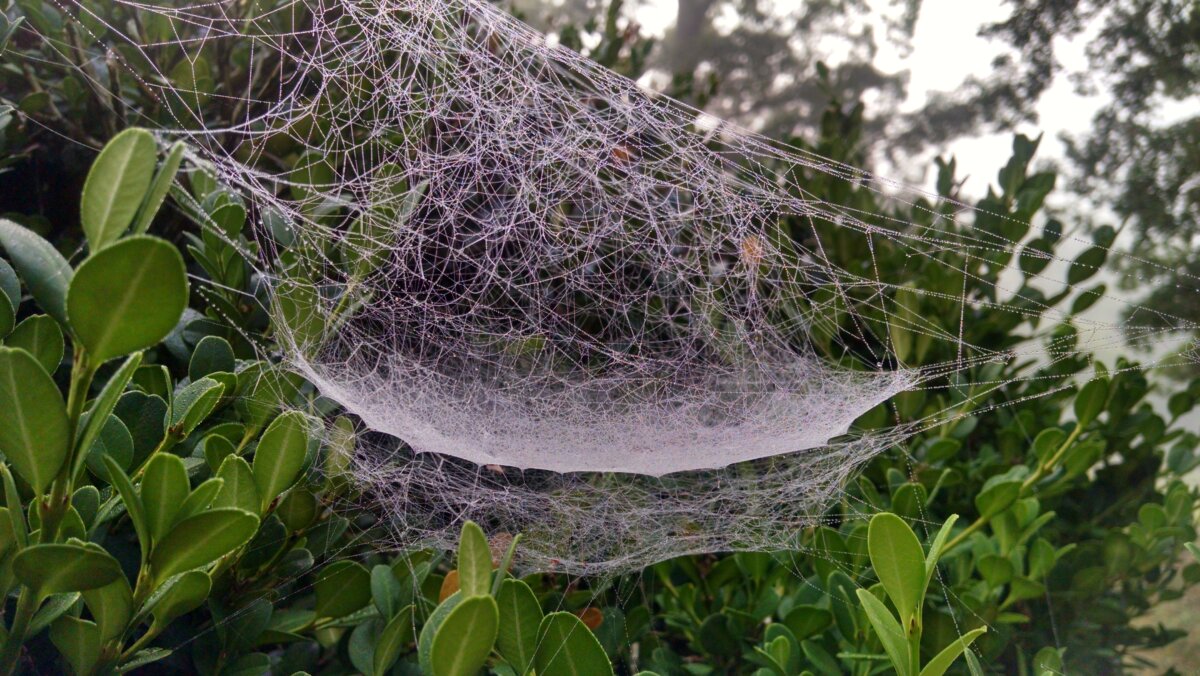
You don’t need to do the company-is-coming deep-clean every day, of course, but a simple daily routine of sweeping up the floor, swishing the duster through the corners, and keeping clutter at bay is a healthy practice for any homestead. The cleaner you keep your space, and the more consistently you clean, the less attractive that space will be to a spider.
And what about the attic or closet? An old-fashioned trick is to use the large, alien-like orbs of Osage orange as a traditional spider repellent. These citrus-smelling fruits ripen in the fall — right around the time of year when spiders are starting to migrate indoors to find quiet places and wait out the cold.
Related Post: Osage Orange Trees
Place a few of these in a closet, garage, or attic during the fall to encourage the spiders to go elsewhere. Once the freezing weather hits, you can remove them. Most spiders will have been killed by frost or found their hiding places by then.
During the winter, many spiders come into the house through firewood. If you have a wood stove, anticipate that you’ll be giving some hibernating spiders a rude awakening when you bring the wood into the warm. You can either appreciate their brief presence or remove them as you find them.
Finally, there’s a certain level of acceptance that I think every homesteader needs to acquire when it comes to the spiders in their world. They’re going to be there. They need to be there. We just need to learn to live with them.
To end this article, I’ll give you a story that doesn’t fall in line with the modern zeitgeist of spider paranoia. In preparation for writing, I purposely found a brown recluse for you all, and (gasp!) I have lived to tell the tale. I wanted the photo for the article, but I also wanted to illustrate the point that a brown recluse, like all spiders, aren’t out to get you.
Knowing that recluses like to find quiet, out-of-the-way places to hide, I went to our garage storage to hunt. When I brought out our Sun Oven to ready it for summer service, I knew I had a good chance. To be smart, I wore gardening gloves on my hands as I reached in to bring out the oven — always a good practice when pulling something out of storage. Having stood undisturbed, a recluse had predictably hidden itself under the layers of the reflective shield.
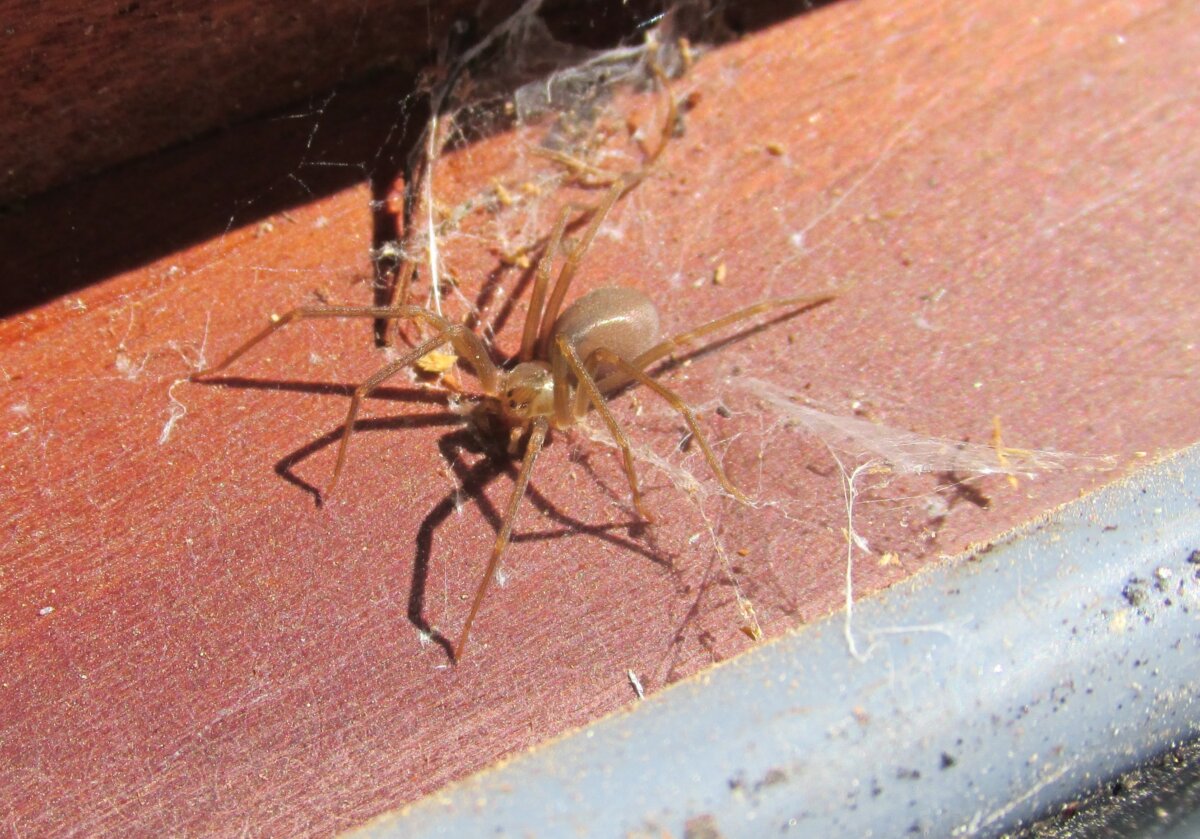
And you know what it did when I found it? Stood still for the picture, and then ran away. I was in no more danger than if I had found a butterfly. Since I knew the recluse’s habit, I knew where it could be. Since I knew it had weak fangs, I simply armed myself with gloves when I had to reach into a dark space and knew I would be all right. And since I wasn’t afraid of it — and wasn’t intending to handle it — there was a neat moment with the camera.
I hope that story helps dilute some of the fear-driven hype that other online articles use to stir up spider paranoia. Instead of living in fear of these tiny creatures, equip yourself with a bit of knowledge about their interesting lives to help you live with them, enjoy their benefits, and maybe see some beauty in an unfairly-maligned slice of creation.




















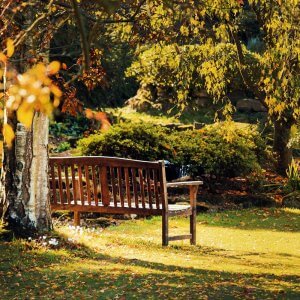




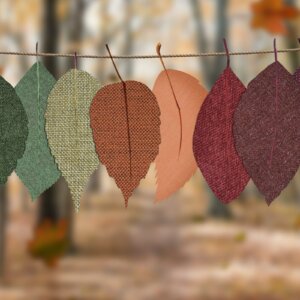













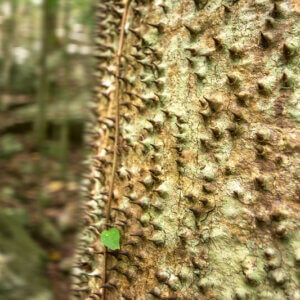


Great understanding of spiders, but complete lack of one for arachnophobia. Intense, irrational fear is not a conscious choice by the individual and requires professional therapy to eventually overcome. It might appear ridiculous to those that don’t have it, just like depression or anxiety seems strange to a healthy person. Simply asking someone to cheer up does not lesson their syndromes, just as a deeper understanding of physics doesn’t cure acrophobia.
Thank you for this article (and for not peppering it with large photos of spiders) – I have bookmarked it. I do have a quite severe spider phobia, but I also love nature & totally understand and appreciate on a rational basis the spider’s huge importance in our ecosphere. Maybe at some point i will be in a position to take proper steps to address my phobia, but until then, I will follow your advice & will be taking steps to make & keep my home tidy & clean!